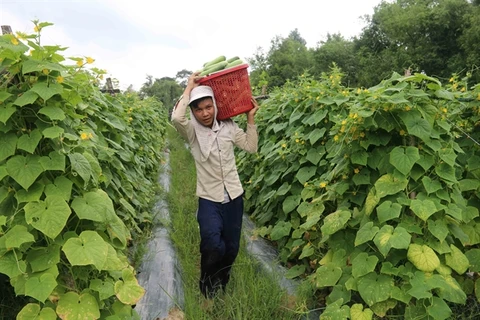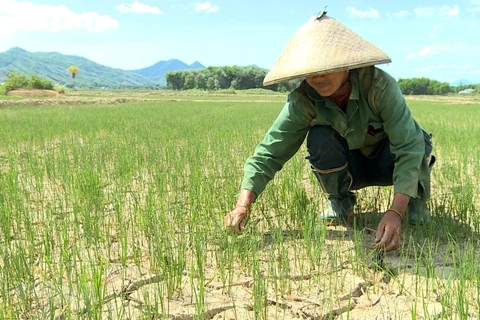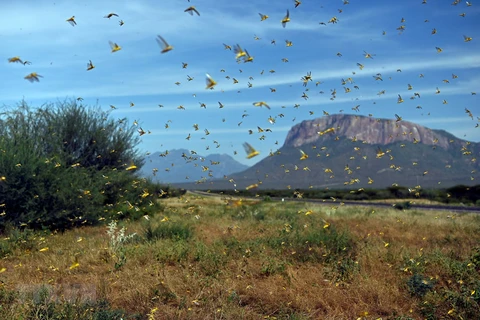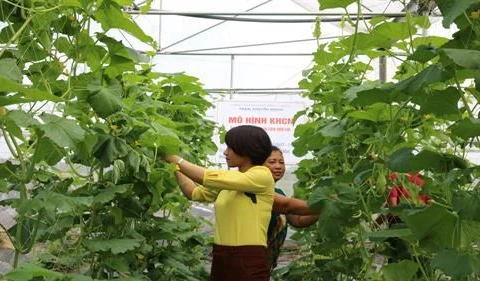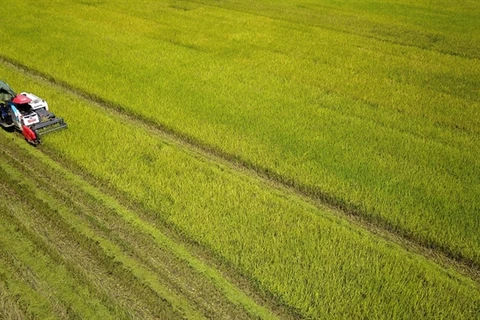 Harvesting the 2020 spring rice crop in Hoa Binh commune of Vu Thu district, Thai Binh province (Photo: VNA)
Harvesting the 2020 spring rice crop in Hoa Binh commune of Vu Thu district, Thai Binh province (Photo: VNA) Hanoi (VNA) – The agriculture ministry has devised measures to turn Vietnam into one of the world’s most 15 developed countries in terms of agriculture by 2030, and among the top 10 farm produce processing hubs.
This is the goal set in the Prime Minister’s Directive No. 25/CT-TTg on several tasks and solutions for developing agro-forestry-fishery processing and agricultural mechanisation.
Talking to the Vietnam News Agency, Nguyen Quoc Toan, Director of the Agro Processing and Market Development Authority (AgroTrade) under the Ministry of Agriculture and Rural Development (MARD), said over the last 10 years, the processing industry has posted a considerable growth rate of 5-7 percent annually, helping to raise agricultural exports to 41.2 billion USD in 2019 – ranking 15th in the world and second in Southeast Asia.
There are 7,500 businesses involved in agricultural processing across the country at present.
However, he noted, to achieve the target set in the directive, the processing industry must optimise local comparative advantages and tap into potential to make breakthrough development.
Firstly, processing facilities should be relocated to concentrated material supplying areas. Clusters of processing and sale facilities need to be developed in the localities and areas with large agricultural output, favourable conditions in terms of transports, logistics and workforce, and potential to become growth engines of their regions like the Mekong Delta, southeastern and northwestern regions.
The sector will also increase the proportion of intensive processing that generates high added value, Toan said.
Secondly, an open and optimal business climate will be created to facilitate investment in agricultural processing and mechanisation, the official noted, adding that the ministry will continue abolishing unnecessary administrative procedures and business conditions while perfecting specific investment attraction policies for each region.
Thirdly, international-level enterprises with high competitiveness will be developed to lead the domestic processing industry. Small- and medium-sized firms also need to be fostered to boost the purchase of raw farm produce, according to him.
Fourthly, the agricultural sector will step up developing science-technology and human resources, he went on, elaborating that more advanced and environmentally friendly technologies will be applied, and mechanical engineering companies will be encouraged to help with agricultural mechanisation, thereby forming smart farming models.
The MARD will also work with other ministries and sectors to develop human resources to prepare high-quality personnel for operating major processing plants, Toan added./.
VNA
